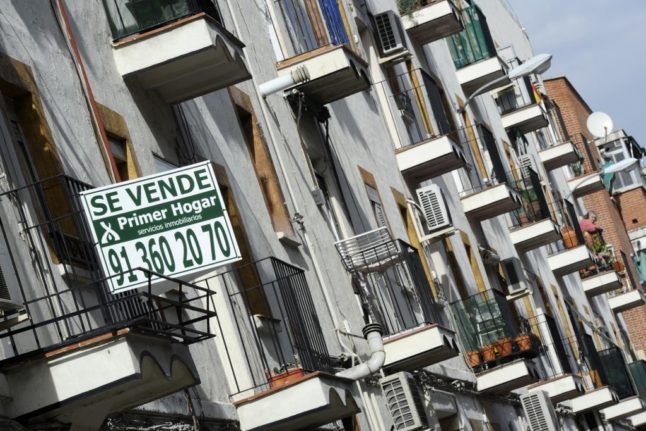Spain has long been a haven for foreigners looking to buy cheap property, whether it be a holiday home to spend the summer months or somewhere to retire or relocate to entirely.
While the country may still be much cheaper than many nation across northern Europe, the US, Canada or Australia, prices are going up and if you want to find a bargain – a property under €100,000, that is – you’ll need to know where to search.
If you were looking to buy in Madrid, for example, finding somewhere for under €100,000 might prove difficult.
According to recent data published by Spanish property giants Idealists, homes in the Spanish capital under €100,000 account for a measly 3.9 percent of the total market.
Even for properties costing €200,000 or less, just 30.5 percent of the capital’s viviendas fall into that category.
In Spain’s second city, Barcelona, the number of homes available for €100,000 or less has actually increased ever so slightly in the last year, from 1.6 percent to 1.7 percent in May 2022.
Increasing marginally it may be, that still means that in Barcelona fewer than two in every 100 properties cost €100,000 or less.
Even if you expand the search to €200,000, in Barcelona just 19.4 of properties in May 2022 cost €200,000 or less.
Spain’s two main cities might not be the best places to find a bargain then, it seems, and it is worth remembering that like in other capital cities across the world, such as London, New York, or Paris, the cheaper properties (in this case, those under €100,000) are often incredibly small, old, poor quality, far from the city centre or publican transport links, or some combination of all of those things.
Tourist favourites
If you’re looking for cheap property in areas already popular with other foreigners, or large international communities, be warned, prices can be steep, depending on where you are.
Note that these figures are for provincial capitals, not the wider province as a whole, and therefore may not be representative of the availability of cheap properties in smaller towns and cities there. They do, however, give us an idea and are good for making comparisons.
In Alicante, for example, the Costa Blanca city famous among foreigners in Spain, 23.2 percent of properties in the province’s capital are on the market for under €100,000.
In Santa Cruz de Tenerife in the Canary Islands, that figure is 20.4 percent, whereas in the next-door city of Las Palmas de Gran Canaria, it’s just 14.5 percent.
In Valencia 13.6 percent of properties cost less than €100,000, while in Costa de Sol hotspot Málaga there’s even fewer, with just 7.4 percent of properties.
In Palma de Mallorca, just 1.1 percent of properties available cost €100,000 or less, making the Balearic capital the second city with least cheap housing after the upmarket Basque city of San Sebastián.
The Spanish cities where there are most cheap properties under €100K
So which are the Spanish cities with the highest stock of affordable housing? Here is a list of the provincial capitals where at least 25 percent of homes are available for less than €100,000, based on Idealista data from May 2022.
Provincial capitals where 40 percent or more of properties on the market are under €100,000.
- Huelva (47.5 percent)
- Lleida (46.9 percent)
- Ávila (46.6 percent)
- Jaén (44.8 percent)
- Zamora (42.0 percent)
- Teruel (41.8 percent)
- Ciudad Real (41.2 percent)
Provincial capitals where 30 to 40 percent of properties on the market are under €100,000.
- Palencia (38.4 percent)
- Cuenca (38.3 percent)
- Murcia (37.5 percent)
- Almería (36.1 percent)
- Cáceres (35.7 percent)
- Huesca (35.6 percent)
- Valladolid (34.6 percent)
- Oviedo (34.3 percent)
- Zaragoza (33.7 percent)
- León (33.6 percent)
- Soria (33.3 percent)
- Castellón de la Plana (31.8 percent)
- Ourense (30.6 percent)
Provincial capitals where 20-30 percent of properties on the market are under €100,000.
- Lugo (29.1 percent)
- Badajoz (27.4 percent)
- Tarragona (26.7 percent)
- Logroño (25.7 percent)
- Guadalajara (25.6 percent)
- Córdoba (24.6 percent)
- Burgos (24.1 percent)
- Alicante (23.2 percent)
- Santa Cruz, Tenerife (20.4 percent)
- Salamanca (20.0 percent)



 Please whitelist us to continue reading.
Please whitelist us to continue reading.
Member comments